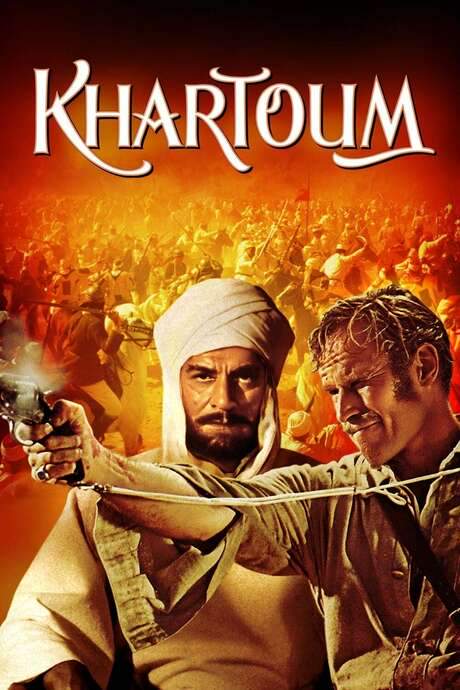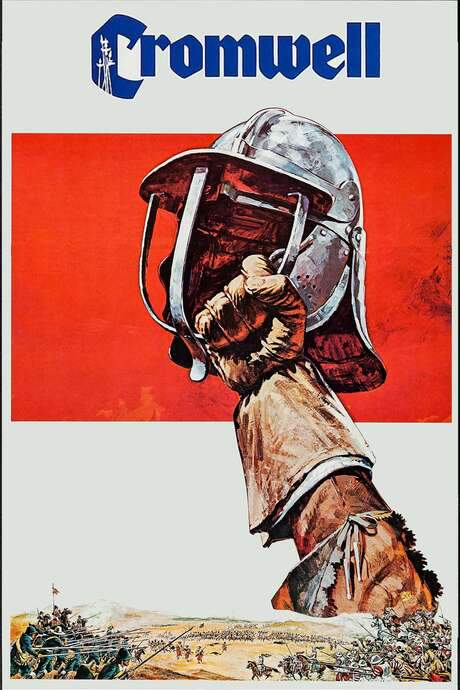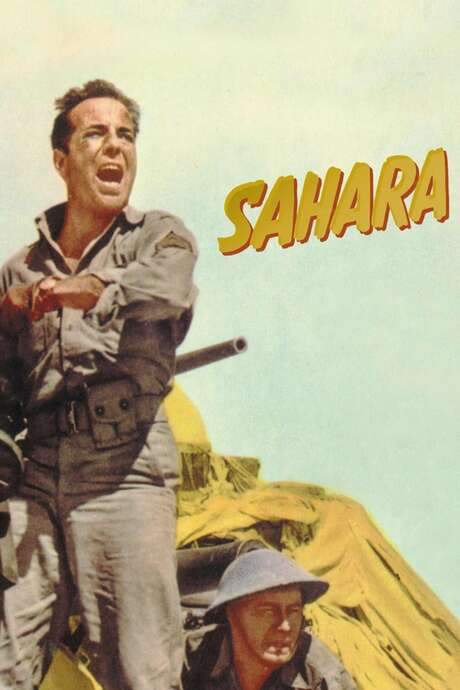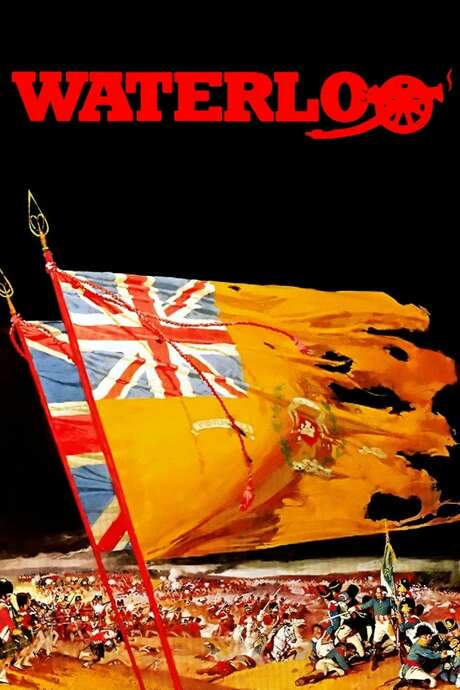
Khartoum
Year: 1966
Runtime: 134 mins
Language: English
Directors: Basil Dearden, Eliot Elisofon
Set along the split of the Nile, the epic Cinerama saga follows English General Charles George Gordon, appointed military governor of Anglo‑Egyptian Sudan by the British Prime Minister. Though ordered to evacuate Egyptian forces, Gordon refuses to abandon Khartoum, staying to shield its inhabitants from an advancing Muslim army threatening conquest.
Warning: spoilers below!
Haven’t seen Khartoum yet? This summary contains major spoilers. Bookmark the page, watch the movie, and come back for the full breakdown. If you're ready, scroll on and relive the story!
Khartoum (1966) – Full Plot Summary & Ending Explained
Read the complete plot breakdown of Khartoum (1966), including all key story events, major twists, and the ending explained in detail. Discover what really happened—and what it all means.
In 1883, in the Sudan, a force of 10,000 poorly trained but well-armed Egyptian troops is lured into the desert. Commanding the force is former Bombay Army soldier Colonel William “Billy” Hicks [Edward Underdown], now a private operator paid by the Egyptian government. He is overwhelmed by native tribesmen led by Muhammad Ahmed, the Nubian religious leader of the Samaniyya order who has proclaimed himself the Mahdi [Laurence Olivier]. The Mahdi’s followers slaughter the troops and seize the weapons, leaving Khartoum vulnerable and the British in a difficult moral and strategic bind.
Back in London, William Ewart Gladstone [Ralph Richardson], the prime minister, faces intense public pressure to avenge Hicks’s death. He is torn between political expediency and cautious restraint, knowing that a direct confrontation could escalate into a larger imperial clash. The option of sending a seasoned, controversial colonial figure—Major General Charles George Gordon—looms large. Gordon [Charlton Heston] brings a reputation for field leadership and deeply held religious convictions, but his appointment signals a willingness to take a highly personal, high-stakes risk. Lord Granville [Michael Hordern], the Foreign Secretary, recognizes that dispatching Gordon to Khartoum could deflect public anger and let the government avoid full accountability if things go wrong, a calculation that Gladstone weighs carefully for the sake of both policy and public sentiment.
Gordon is told that his mission is unofficial: evacuate troops and civilians with only a skeleton staff and virtually no guarantees from London. He accepts, albeit with a wary eye toward the limits of his authority. His sole aide is Colonel J. D. H. Stewart [Richard Johnson], a steadying presence amid mounting pressure. An early attempt to recruit Zobeir Pasha [Zia Mohyeddin] fails, and Gordon and Stewart press on toward Khartoum, where the general is greeted as a savior by the city’s residents upon his arrival in February 1884. He begins organizing defences and rallying the people, even as Stewart warns that this is not the mission he was sent to perform.
Gordon’s first act is to confront the Mahdi in the insurgent camp, accompanied by only a single servant. The exchange is tense and pointed, revealing the Mahdi’s resolve to seize Khartoum and punish its inhabitants as an example. Returning to the city, Gordon, a qualified engineer, wastes no time in digging a ditch to create a defensive moat between the White Nile and the Blue Nile, a practical measure born of necessity and foresight.
Across the sea, Gladstone becomes acutely aware of the city’s peril and orders Gordon to withdraw, but the general’s resolve remains unshaken. Stewart travels to London to plead the case, and public opinion grows ever louder in demanding relief. Gordon’s stance—resolute, impassioned, and increasingly isolated—persists even as the British government contends with the political costs of abandonment and the fear of appearing indecisive.
News arrives that a relief force, commanded by General Wolseley [Nigel Green], is being assembled in Britain. Yet as Khartoum’s waters recede in winter, shrinking the moat and thinning the city’s defenses, the smaller Egyptian army proves unable to withstand a massive onslaught from tens of thousands of Mahdist warriors. On 26 January 1885, Khartoum falls to the besieging forces. Gordon and the foreign garrison—together with tens of thousands of inhabitants—are slaughtered, despite a brief injunction from the Mahdi against killing Gordon personally. In a grim postscript, Gordon’s head is displayed on a pole as a stark symbol of the city’s fall.
The relief column arrives two days too late, and Khartoum’s ruin ushers in a period of withdrawal for Britain. The Mahdi dies six months later, but the political and moral shock helps spark a renewed, later British campaign in the Sudan. By 1898, Khartoum would be recaptured as part of a broader reassertion of imperial power, reshaping the region’s future in the hands of new leaders and new strategies.
In the end, the tale is one of ambition and restraint, courage and consequence, where leadership decisions ripple through politics, faith, and the fate of a city. The human stories—of Hicks’s doomed expedition, Gordon’s determined yet doomed stand, and the grinding push and pull between government policy and battlefield reality—remain central to understanding why Khartoum’s siege remains a touchstone of imperial history.
Last Updated: October 07, 2025 at 09:31
Explore Movie Threads
Discover curated groups of movies connected by mood, themes, and story style. Browse collections built around emotion, atmosphere, and narrative focus to easily find films that match what you feel like watching right now.
Movies about doomed stands like Khartoum
Stories of noble but futile last stands against overwhelming forces.Explore more movies like Khartoum that depict tragic last stands and heroic failures. If you were captivated by the story of General Gordon's defiant stand in Sudan, you'll find similar tales of principled resistance against impossible odds in these historical epics and dramas.
Narrative Summary
This narrative pattern follows a protagonist, often a military or moral leader, who refuses to retreat or compromise in the face of an unstoppable enemy or force. The story builds methodically towards a climactic confrontation that is foreshadowed as doomed, emphasizing the tragedy of idealism clashing with harsh reality.
Why These Movies?
Movies are grouped here for their shared mood of impending doom, their focus on the psychological burden of leadership in a hopeless situation, and their ultimately tragic conclusions that leave a heavy emotional impact.
Grim colonial conflict movies similar to Khartoum
Epic stories exposing the moral complexity and brutal consequences of imperialism.Find movies similar to Khartoum that explore the bleak realities of colonialism and imperial warfare. If you appreciated the complex portrayal of British involvement in Sudan, these films offer comparable depth, focusing on military strategy, political betrayal, and the heavy moral price of empire.
Narrative Summary
The narrative typically unfolds through the perspective of a conflicted agent of the empire, wrestling with orders that clash with their conscience or witnessing the devastating impact of foreign intervention. The plot often involves a military campaign or siege that highlights the strategic and human failures of colonial power.
Why These Movies?
This thread unites films through their dark tone, focus on themes like colonialism and religious war, and their depiction of leadership dilemmas within a morally ambiguous historical context. They share a steady pacing that builds tension towards a sobering conclusion.
Unlock the Full Story of Khartoum
Don't stop at just watching — explore Khartoum in full detail. From the complete plot summary and scene-by-scene timeline to character breakdowns, thematic analysis, and a deep dive into the ending — every page helps you truly understand what Khartoum is all about. Plus, discover what's next after the movie.
Khartoum Timeline
Track the full timeline of Khartoum with every major event arranged chronologically. Perfect for decoding non-linear storytelling, flashbacks, or parallel narratives with a clear scene-by-scene breakdown.

Characters, Settings & Themes in Khartoum
Discover the characters, locations, and core themes that shape Khartoum. Get insights into symbolic elements, setting significance, and deeper narrative meaning — ideal for thematic analysis and movie breakdowns.

Khartoum Spoiler-Free Summary
Get a quick, spoiler-free overview of Khartoum that covers the main plot points and key details without revealing any major twists or spoilers. Perfect for those who want to know what to expect before diving in.

More About Khartoum
Visit What's After the Movie to explore more about Khartoum: box office results, cast and crew info, production details, post-credit scenes, and external links — all in one place for movie fans and researchers.

Similar Movies to Khartoum
Discover movies like Khartoum that share similar genres, themes, and storytelling elements. Whether you’re drawn to the atmosphere, character arcs, or plot structure, these curated recommendations will help you explore more films you’ll love.
Explore More About Movie Khartoum
Khartoum (1966) Scene-by-Scene Movie Timeline
Khartoum (1966) Movie Characters, Themes & Settings
Khartoum (1966) Spoiler-Free Summary & Key Flow
Movies Like Khartoum – Similar Titles You’ll Enjoy
Gallipoli (1981) Complete Plot Breakdown
Lion of the Desert (1980) Plot Summary & Ending Explained
Cromwell (1970) Story Summary & Characters
Sahara (1943) Story Summary & Characters
The Egyptian (1954) Complete Plot Breakdown
Waterloo (1970) Full Summary & Key Details
North West Frontier (1959) Movie Recap & Themes
King Richard and the Crusaders (1954) Story Summary & Characters
Suez (1938) Story Summary & Characters
Storm Over the Nile (1955) Story Summary & Characters
The King of North Sudan (2021) Full Movie Breakdown
East of Sudan (1964) Spoiler-Packed Plot Recap
The Battle of El Alamein (1969) Film Overview & Timeline
Zulu Dawn (1979) Full Summary & Key Details
Attack On Darfur (2009) Spoiler-Packed Plot Recap









































